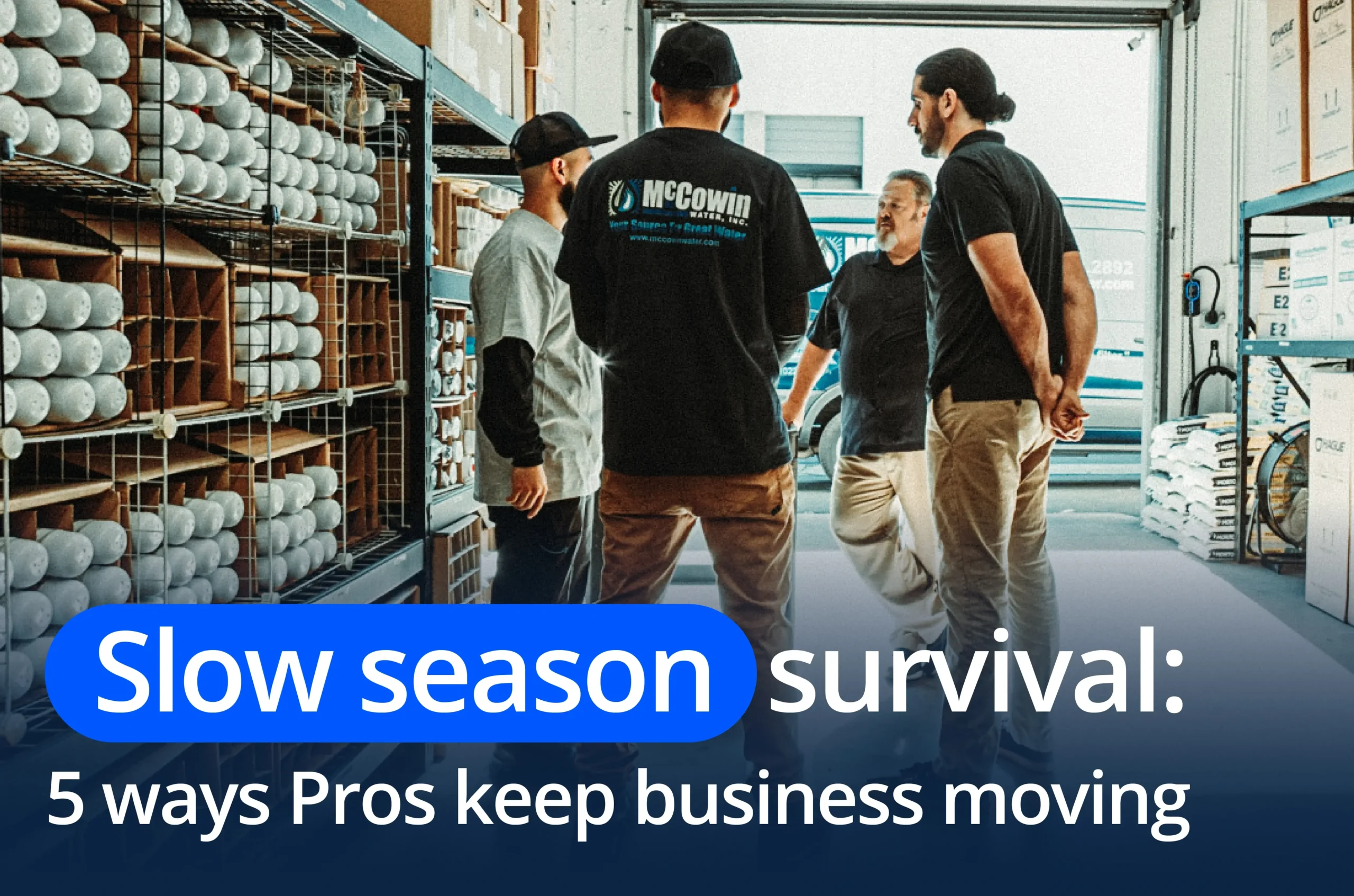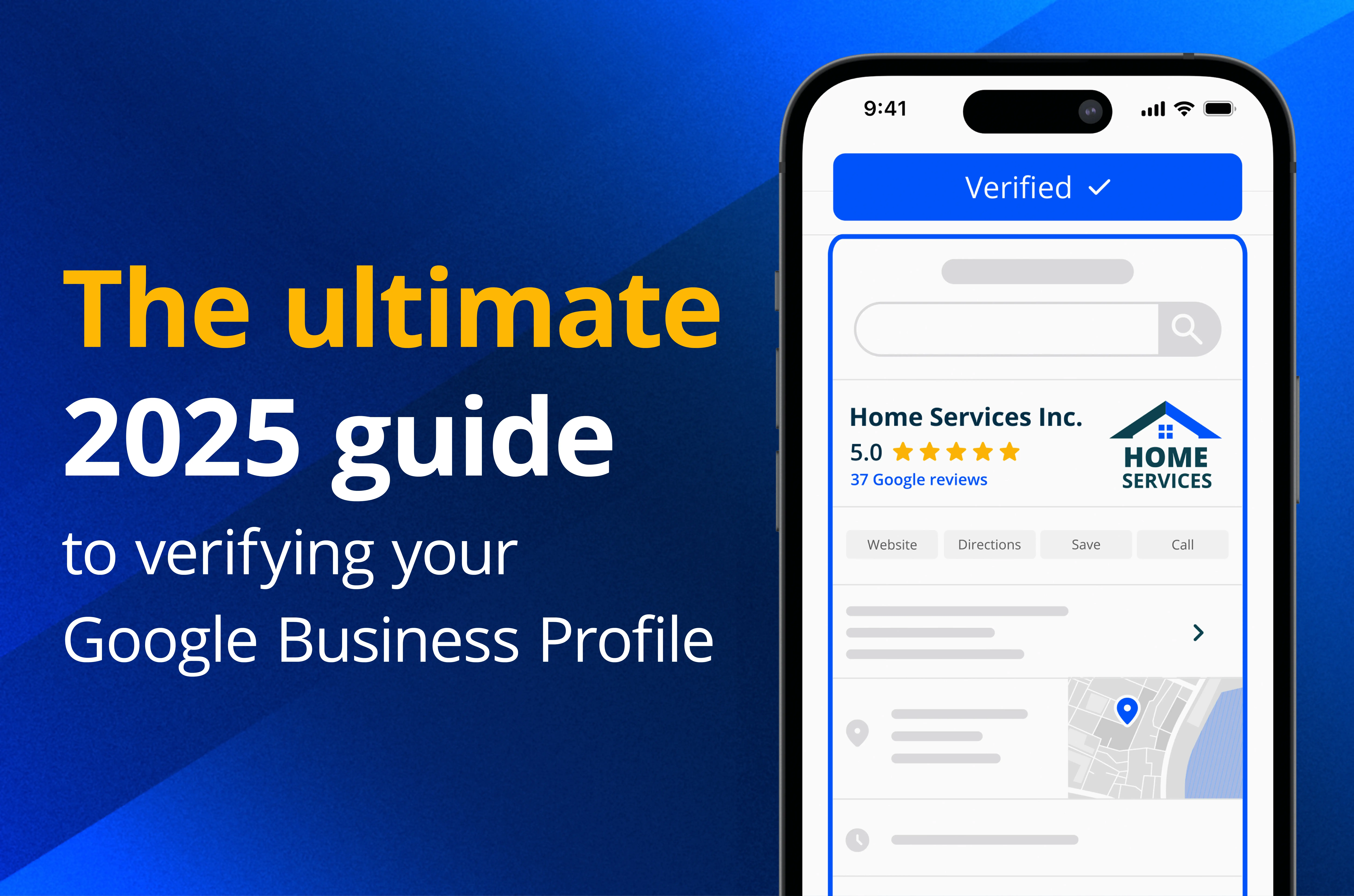
What if you could go into a highly profitable business that would be in continuous demand? Would you do it? If you have an entrepreneurial spirit, the chances are that starting a new carpet-cleaning business could be just the opportunity you’ve always dreamed of.
The truth is that floors see a lot of wear and tear every day. And all that traffic means a lot of dirt and grime getting ground into carpets and rugs. Over time, that dirt and grime can develop bacteria, not to mention an odor that homeowners and business owners would rather avoid. The solution? Professional carpet cleaning.
In this article, we’ll offer a step-by-step guide for new rug and carpet cleaning business owners to not just get started but to become profitable quickly.
Is Carpet Cleaning a Good Business to Start?
As we said above, carpets and rugs get dirty. And it’s not just dirt—carpets and rugs can hold up to 200,000 bacteria per square inch. Think of an inch for a moment and how big that number is. It’s no wonder there is a demand for carpet cleaning.
But that’s not the only reason why it’s such a great business endeavor. Consider the following.
- Relatively low start-up costs
- Low overhead costs with minimal ongoing expenses
- High demand across both residential and commercial sectors
- Flexible business model
- Opportunity to set your own hours
- Potential for repeat clients and referrals
- Opportunity to scale the business
How Profitable is a Carpet Cleaning Business?
All of that makes sense, right? But we know your next question—how much can you make with a carpet cleaning business? And, more specifically, what is the estimated carpet cleaning business salary?
Well, we have good news for you. Though there are some factors that we’ll list below, most carpet-cleaning business ventures bring in over $100,000 annually. That’s not too bad when you consider the average annual salary in the U.S. is $59,428.
So, what impacts your salary in your carpet cleaning business?
- Business location and local demand
- Size of the business and number of clients served
- Focus on specific services (e.g., residential, commercial, specialty cleaning)
- Level of experience and expertise in the field
- Investment in marketing and advertising efforts
- Reputation and quality of work delivered
- Frequency of repeat clients and referrals
How Much Money Do You Need To Start a New Carpet Cleaning Business?
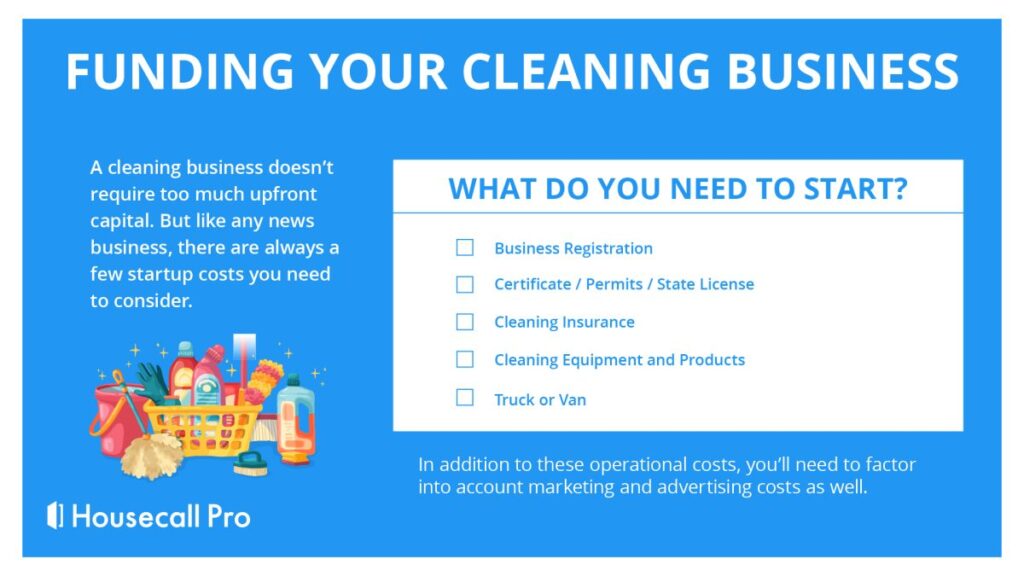
This all said you will need to invest in some equipment to get your carpet cleaning business off the ground. And you’ll want to invest in commercial-grade products rather than those carpet cleaning systems that you can find on the shelf at your local department store.
We estimate you’ll need to invest around $5,000 to $10,000 to get started. We’ve made a list of the things that go into those initial costs so that you don’t run into any surprises along the way.
- Professional Carpet Cleaning Equipment: $3,000–$6,000 for items such as commercial carpet cleaners, extractors, and drying fans
- Cleaning Supplies: $200–$500 for professional-grade cleaning solutions, spot removers, and disinfectants
- Business Insurance: $40–$50 per month for general liability coverage
- Marketing and Advertising: Allocate 7%–8% of projected revenue for expenses like local ads, business cards, and an online presence (approximately $500–$1,000 for initial setup)
- Overhead Costs: $300–$500 for miscellaneous expenses, including vehicle fuel, protective gear, and small maintenance items
- Licenses and Permits: $100–$300 depending on local requirements
Successful Business Case Study–Mighty Clean’s Startup Story
Milton Green had been in the carpet cleaning industry for over twenty years before he decided to start his own company with his wife, Julie. They founded Mighty Clean Carpet and Upholstery as cheaply as they could and built up the business piece by piece without taking on a lot of debt:
“We basically started our company with about $7,000 worth of capital, bought a carpet cleaning machine that went into the back of my wife’s minivan, went out there and did the legwork, and landed a couple of good accounts that helped us fund everything else.”
Just a couple of months in, they were hired by a hotel that brought in over $60,000 in the first year. “It was the recurring business that we got from the hotel that actually helped us grow and got off the ground completely.”
The Big Takeaway: Start out as small as you can while maintaining a professional process. Focus on building strong customer relationships that can help you grow.
Take These Steps To Start Your Carpet Cleaning Business Venture
Now that you know the costs that you’ll incur to get your business started and how much money you can anticipate making, let’s talk about the more specific steps you need to take to get started. The thing to remember here is that with this type of business, you’ll be entering homes and businesses, which are, for all intents and purposes, private property.
For this reason, you need to make sure you set up your business properly within the geography in which your business will operate to prove your legitimacy. Many consumers, whether residential or commercial, will not want non-licensed or approved businesses in their private spaces. So without further ado, let’s discuss those key steps you should take.
1. Develop Your Skills and Get Certified
While we could jump right into the business plan process, we’re going to save that for the next step. The reason for this is that your business plan will be stronger and more specific if you can incorporate the things that you learned throughout the skill development and certification process. Plus, working on those skills and any licenses and certifications can help you confirm this is the business you want to go into.
So, here’s what to do.
- Take Professional Carpet Cleaning Training Courses: Look for courses that cover the fundamentals of carpet cleaning, stain removal, and equipment handling.
- Obtain Certification from the Institute of Inspection Cleaning and Restoration Certification (IICRC): This certification builds credibility and helps you gain technical skills for professional carpet cleaning.
- Learn About Different Carpet Materials and Cleaning Techniques: Gain knowledge on handling various carpet and rug types, as each material may require unique care.
- Stay Updated on Industry Trends and Equipment Advances: Research new products, methods, and technology in carpet cleaning to keep your skills current.
- Shadow Experienced Professionals or Complete an Apprenticeship: Hands-on experience with skilled professionals can provide real-world insights and practice before starting your business.
- Participate in Local Workshops or Seminars: Many community colleges or cleaning associations offer workshops that teach practical techniques and business essentials.
2. Build Your Business Plan
After you have completed your training and certifications or on a parallel path, it’s time to start working on that business plan. Know that this typically takes a few days to weeks to complete, so don’t assume you’ll be able to get it all done overnight. And you may need to pull in some additional resources, such as an accountant, a marketing resource, etc., to help you with some of the more specific components.
The more effort you put into this process, the more likely you’ll have a plan to follow that puts you on the path to success and profitability. You’ll also need to submit your business plan to your state’s Department of Revenue to set up your business. Plus, most small business lenders will require a copy of your business plan to consider your business for a small business loan.
When building your business plan, start by outlining your primary business goals. Consider what you want to achieve in the first year, such as customer acquisition targets, revenue goals, and any key milestones. Identify your target market—whether it’s residential customers, commercial clients, or both—and focus on the services that are likely to appeal most to them.
Next, develop a financial forecast for at least the first year, including a breakdown of expected expenses, revenue, and profits. This budget should account for start-up costs, such as equipment, supplies, insurance, and ongoing operational costs.
Finally, choose a business structure, such as a sole proprietorship, partnership, or LLC, as this decision affects your tax obligations and liability. For many small businesses, an LLC offers a balance of flexibility and liability protection. We suggest you chart with an accountant to help you understand the implications of each option.
Free eBook Download–Unlock Your Carpet Cleaning Business Potential
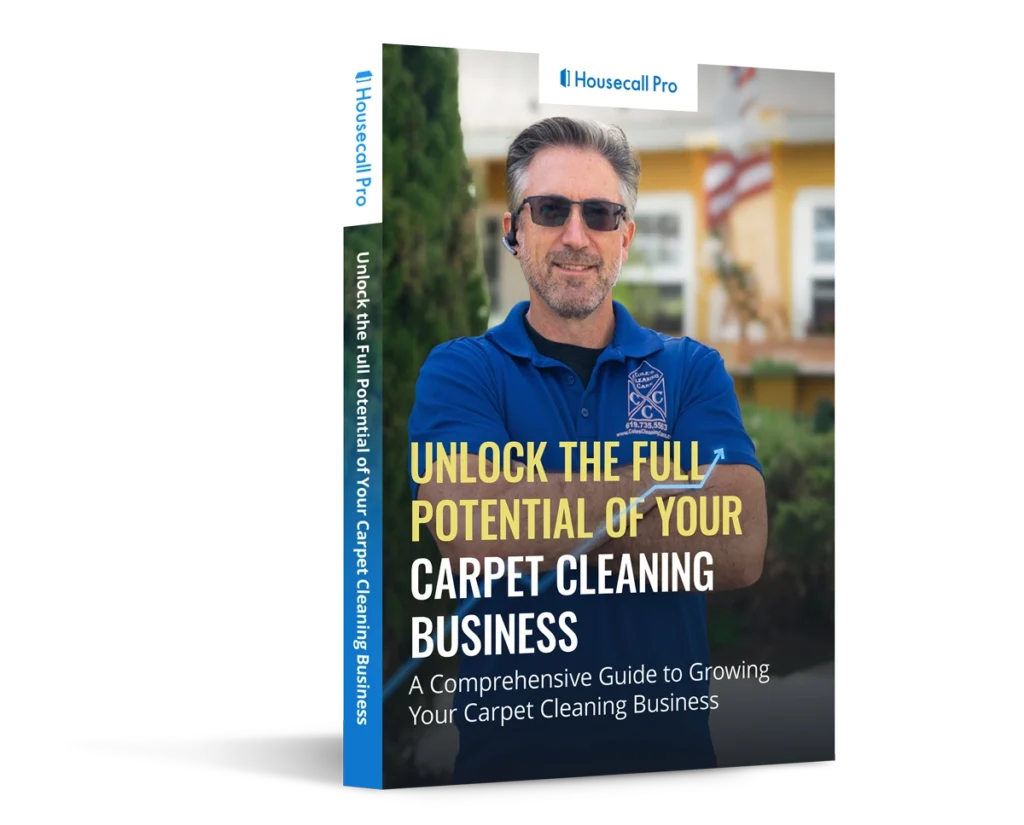
Are you eager to grow your carpet cleaning business and reach more clients? Our comprehensive ebook has everything you need to streamline operations, attract loyal customers, and reach your revenue goals. Learn the exact steps you need to go from technician to boss of your own carpet cleaning company.
Designed for Carpet Cleaning Professionals
Inside this guide, you’ll discover proven strategies to bring in new customers, optimize your marketing investment, and scale your business with confidence. Here’s what you’ll learn:
- Winning customer service strategies
- Profitable pricing models that work
- Marketing strategies tailored to carpet cleaning
- Building a loyal, recurring customer base
- Setting up a clear marketing budget and strategy
- Effective advertising and promotional tactics
- Smart growth strategies for your business
Download now and start building a carpet cleaning business that stands out and grows sustainably!
3. Register Your Business and Obtain Licenses
Once you know the structure you want, it’s time to register your business and obtain your license. Choosing a name for your carpet cleaning business is an important first step, as it establishes your brand and makes your services memorable to potential clients. Once you’ve decided on a name, check that it’s available in your state and register it with the appropriate local agencies. Many areas require a “Doing Business As” (DBA) registration if your business name differs from your own.
Next, secure any local business licenses or permits required for operating a carpet cleaning service. These requirements vary by location, so check with your city or county office to understand what’s needed. If you plan to hire employees, you’ll also need to apply for an Employer Identification Number (EIN) through the IRS. This number is necessary for tax purposes and helps you establish your business as a recognized entity with legal and financial standing.
4. Get Business Insurance

As we mentioned earlier, you will be entering homes and businesses to clean carpets. For this reason, you need business insurance to protect you from any unanticipated consequences of your work. Though you will do everything you can to avoid it, sometimes floors and walls get damaged, or someone may get hurt. Without insurance, the costs of these repairs and damages can be astronomical, quickly putting you in a bad financial situation.
Typically, you will need business liability insurance, which covers costs related to property damage or injury caused during your work. Liability insurance is essential for carpet cleaning businesses, as accidental damage to floors, walls, or other home features could otherwise lead to high out-of-pocket costs. This coverage also assures your clients that any issues will be addressed responsibly.
You may also need to invest in workers’ compensation insurance if you have employees. This coverage helps manage the costs associated with workplace injuries or illnesses employees may experience on the job. Workers’ compensation can help cover medical expenses and a portion of lost wages.
5. Invest in Modern Carpet Cleaning Equipment
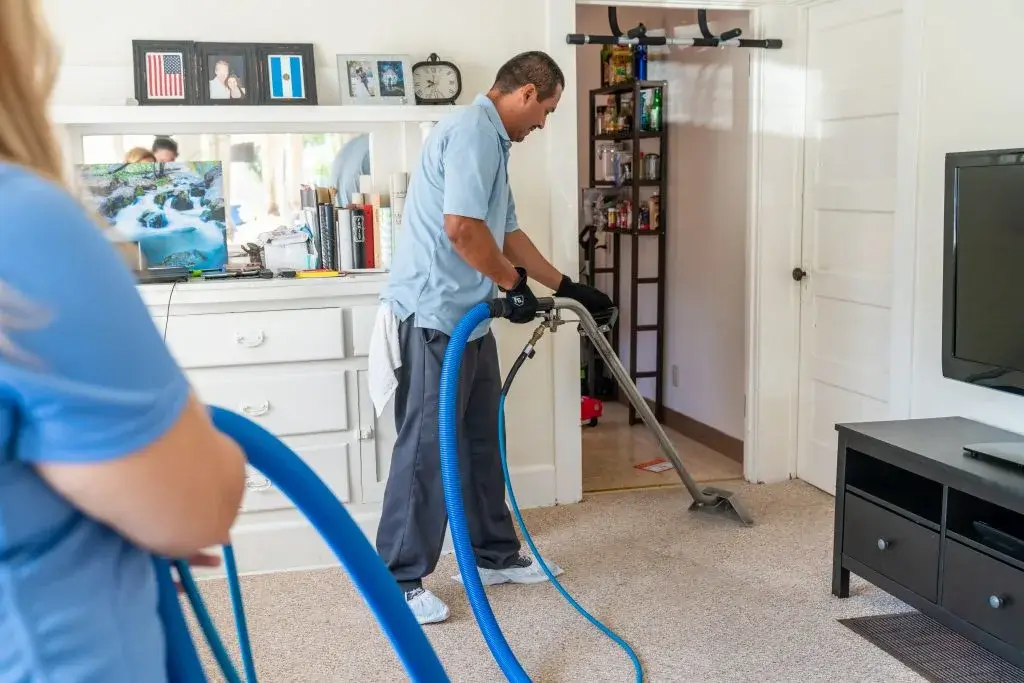
You will need to invest somewhere between $3,000 and $6,000 in commercial-grade cleaning equipment. Of course, the specific expense will vary based on the type of equipment you buy and the number of units.
To get started, invest in high-quality steam cleaners and powerful vacuums designed for commercial use. Steam cleaners are a must-have for deep cleaning, as they can lift dirt and bacteria from carpets, even in high-traffic areas. Additionally, you’ll need vacuums that can handle various carpet thicknesses and remove debris before deep cleaning.
It’s also wise to stock eco-friendly cleaning solutions. Many clients prefer environmentally friendly products, and these solutions can be just as useful on stubborn stains and odors. Having a range of cleaning agents suited for different carpet materials and stain types will allow you to offer tailored solutions.
Free template: Grab our equipment list template and keep your small carpet cleaning business clean, organized and well stocked.
If your budget is tight, consider buying used or refurbished equipment. Just be sure to confirm that any pre-owned items are in good working order to avoid costly repairs later.
6. Set Up Banking and Accounting

We mentioned earlier that you might want to engage an accountant to help you with various components of your business plan. But an accountant can help with other things, too. They can manage your accounting processes so that you can focus on your business. Whether they leverage your preferred carpet cleaning business software or their own system, this can be a huge weight off your shoulders.
Additionally, they can advise you on the proper banking set-up and how to use it. We suggest that you set up separate business accounts that are independent of your personal accounts. Trust us; this will be super helpful to you during tax time.
7. Determine Your Services & Pricing Strategy
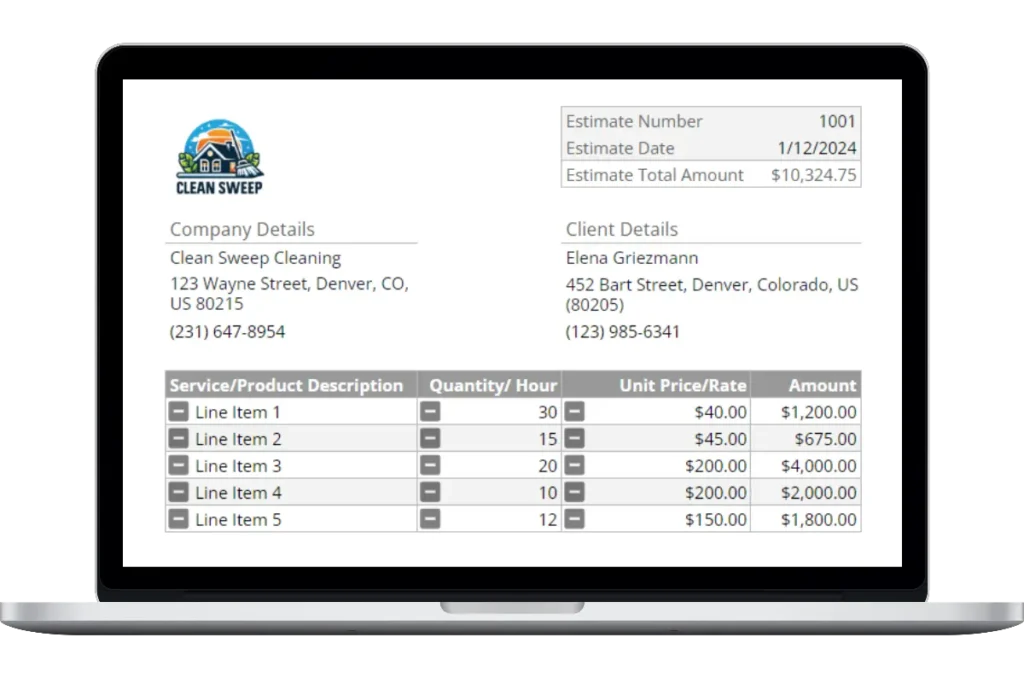
As you worked on your business plan, you likely conducted some market research on the pricing structure of your nearest competitors. This information can help you decide on how to price your own services to make sure you make money, prevent cash flow issues, and don’t turn customers away because your prices are too high.
To determine your specific pricing strategy, consider how you’ll structure your rates: per room, per square foot, or by an hourly rate. Each approach has its benefits. Charging per room or per square foot often appeals to residential clients, as they’ll know the cost upfront based on the space. An hourly rate may work better for larger commercial clients, especially for extensive or complex jobs.
To set competitive rates, research standard prices in your area if you haven’t done so already and adjust based on factors like the type of service, carpet material, and stain removal needs. Don’t forget to account for the costs of supplies, routine equipment maintenance, and travel expenses to job sites.
Free template: Take the next steps and ensure a healthy profit in pricing your carpet cleaning services by downloading a copy of our small business price list template.
8. Develop a Carpet Cleaning Marketing Plan
Marketing and advertising is a must for any business, big or small. This is how you make sure that consumers can find you when they need your carpet cleaning services. To reach potential clients, you need a strategic marketing plan that promotes your carpet cleaning business both online and in your local community.
If you don’t have an existing customer base, positive reviews, or presence in your local community yet, those initial leads are hard to come by. But before you spend tons of money on advertising, we recommend building up your online presence and in-person networking. These strategies can save you money in the long run and help you find organic leads.
Start with these steps:
- Build a Simple Website: Share your services, prices, and contact information. Adding a blog or tips section can attract visitors through SEO—search engine optimization—by addressing common cleaning questions.
- Create a Google Business Profile: This helps local customers find you easily and gives them a place to leave reviews, building your online reputation.
- List Your Business on Online Directories: Use sites like Yelp, Thumbtack, and Angi to improve visibility and attract more clients searching for carpet cleaning services.
- Use Low-Cost Digital Marketing: Try Google Local Service Ads to appear in searches by nearby customers, and run targeted social media ads for homeowners or property managers.
- Offer Referral Discounts: Encourage satisfied customers to refer friends and family. This type of word-of-mouth promotion can help you build that loyal customer base from the get-go.
Learn more: Learn effective carpet cleaning marketing strategies to grow and take your business to the next level!
Case Study–Building a Brand via Referrals
Since Harvey started his business nineteen years ago, he has advertised in various ways. He’s currently building out reviews and has gotten business through his website and different forms of advertising. But the most successful way he’s found clients throughout the years has been through Business Networking International (BNI). The organization is designed to foster referrals between members.
“I had my application in to BNI before my equipment arrived. I very quickly saw that’s how you go after the premium dollar … And it opens up doors much quicker than advertising,” Harvey said.
Harvey believes that he’s been able to charge higher prices because so much of his business comes from referrals. “When it’s a referral, people understand that they’re getting premium work. I’ve been in million dollar houses whose owners I’ve never met because their sister-in-law recommended me.”
He also credits his success to focusing on relationship building.
Try Multiple Strategies At Once
“You always need to have at least two marketing media that are working very well for you. I recommend that you have your hand in at least three. Where does it get to where it’s too many? Maybe five,” explained John Braun on the Cleaners Blueprint Podcast. John is the founder of Premium Carpet Care and Hitman Advertising, an advertising consulting group that caters to cleaning companies.
The media John was referring to could be Facebook, Google Ads, signs in your customer’s yards and so on. At any given point, you should be trying new things, as well as promoting your business in a way that’s tried and true.
Starting Small–Mighty Green’s Facebook Marketing Strategy
When his business was just getting started, Milton got a call from a sales agent at yp.com (the Yellow Pages online) who convinced Milton to sign a monthly contract for $700 a month.
“That was one of the pitfalls of it all. You don’t know what to do when you first get into business. I’m a technician by trade, so as far as a business owner, I know I need to get the phone ringing — how do I do that? This guy caught me basically at the right time where it was like, Hey, your business is going to be so huge if you use our company and we’re going to sell you the premium package, which, which gave me absolutely no business within the first 30 days of actually using them.”
After that, Milton and Julie relied on referrals and word-of-mouth for a while until he invested in social media marketing. Now, the vast majority of his new business leads come from Facebook. Here’s what they did without a large marketing budget:
- They post every day with a mix of educational and sales-oriented content.
- They share their content with local Facebook groups where the engagement is highest.
- They maintain a small budget for Facebook ads.
Milton strongly recommends getting involved with local Facebook groups. “The algorithms, when they changed, we could see a drastic drop in interaction. Like it went from one to two thousand people saw and interacted with your post to a hundred people and that’s it.”
9. Build a Customer Retention Strategy
One of the great things about getting into the carpet cleaning business is that you will be offering ongoing services. To control that bacteria and keep carpets and rugs looking fresh and new, most consumers will want services every 12 to 18 months, more or less. But this is just one of those things that fall to the bottom of people’s priority list as they get busy with all the other pressing demands of their lifestyle.
This puts it on you to keep your carpet cleaning business top of mind. Here are some things you can do.
- Schedule Follow-Up Appointments: Set up quarterly or semi-annual appointments for regular clients, making it easy for them to stay on track with carpet care. Offering loyalty discounts for repeat services can encourage customers to stick with your business.
- Offer Online Booking Options: Simplify the process with an online booking system that lets clients schedule appointments anytime. This added convenience makes it easy for customers to book recurring services.
- Run Targeted Campaigns: Use email or SMS campaigns to remind clients when it’s time for a follow-up cleaning. Seasonal reminders or holiday promotions can also prompt repeat business.
- Request Reviews from Satisfied Clients: Ask happy customers to leave reviews on Google or other platforms. This builds a trustworthy reputation that attracts new clients while reinforcing customer loyalty.
- Focus on Review Management: Actively respond to reviews and feedback to show that you value client input, helping build trust and showing prospective clients that you prioritize customer satisfaction.
10. Scale with Carpet Cleaning Business Software
As you draw in more and more customers, it’s going to be hard to manage your business manually. Investing in carpet cleaning business software can make your life easier and keep your business organized. The best carpet cleaning business software, such as what we offer here at Housecall Pro, can do all of the following and more.
- Job Costing: Easily calculate costs per job, helping you track profitability and adjust pricing as needed.
- Scheduling and Dispatching: Simplify appointment scheduling and make dispatching technicians more organized, allowing you to maximize daily job capacity.
- Equipment Tracking and Service History: Keep track of your equipment’s maintenance needs and service history, reducing downtime and improving reliability.
- Estimating and Invoicing: Generate professional estimates and invoices in seconds, saving time and improving cash flow with prompt billing.
- Customer Relationship Management (CRM): Store and manage client information, so you can personalize services, remember preferences, and provide an amazing customer experience.
Business management software also improves efficiency by automating routine tasks, strengthens customer communication through reminders and follow-ups, and organizes daily operations in one central platform. This lets you focus on providing quality carpet cleaning services while your software handles the behind-the-scenes administrative details.
Additional Resources to Help You Get Started
Even if you know the industry well, it can take a few years to establish your company, develop best practices, build a reputation, and gain a consistent customer base. Just keep at it, and you can create a successful business that returns six figures.
But you don’t need to do this alone. Check out our local meetups and full day Mastermind events to network and learn from other service businesses.
Also consider joining other trade organizations:
- National Carpet Cleaning Association
- Low Moisture Carpet Cleaners Association
- Carpet and Rug Institute
- ISSA-Approved Carpet Care Programs
And these Facebook Groups:
For general business resources, we recommend:
- The US Small Business Administration (SBA)
- SCORE
- Entrepreneurs’ Organization
- National Small Business Association (NSBA)
- National Association for the Self-Employed
And check out a longer list of small business associations.
Carpet Cleaning Software Helping You Every Step of The Way
No matter where you are in your business journey, carpet cleaning tools will help make that journey easier to start. So, what do you need to start a carpet cleaning business? Aside from the many things we discussed earlier in this article, we can’t emphasize enough the importance of carpet cleaning business software to keep you organized. And at Housecall Pro, we make it super easy for you to get started and try it out. Sign up for our free 14-day trial and start your new rug cleaning business off don’t he right foot today.
Carpet Cleaning Business FAQs
-
How hard is it to run a carpet cleaning business?
-
Running a carpet cleaning business comes with its challenges but is manageable with the right preparation. It requires physical work, attention to scheduling, and solid customer service skills. You’ll need to manage equipment maintenance, marketing, and finances. However, with proper training, a good business plan, and the right tools—like scheduling and invoicing software—you can absolutely run a rewarding and profitable carpet cleaning business.
-
What are the most common mistakes new carpet cleaning businesses make?
-
New carpet cleaning businesses often struggle with poor pricing strategies, which can lead to unsustainable profits or lost clients. Over-scheduling or under-scheduling jobs can also disrupt operations, affecting both cash flow and customer satisfaction. Additionally, many new businesses neglect a solid marketing approach. This means many missed opportunities to reach local clients and build a loyal customer base.
-
How can I differentiate my carpet cleaning business from competitors?
-
Focus on providing outstanding customer service and building a reputation for reliability. Offer unique services, such as eco-friendly cleaning solutions or flexible scheduling options. Regular follow-ups and personalized service also help create loyal clients. Finally, maintain a strong online presence with reviews and helpful content such as blogs, infographics, and videos so potential clients see your commitment to quality and convenience.


